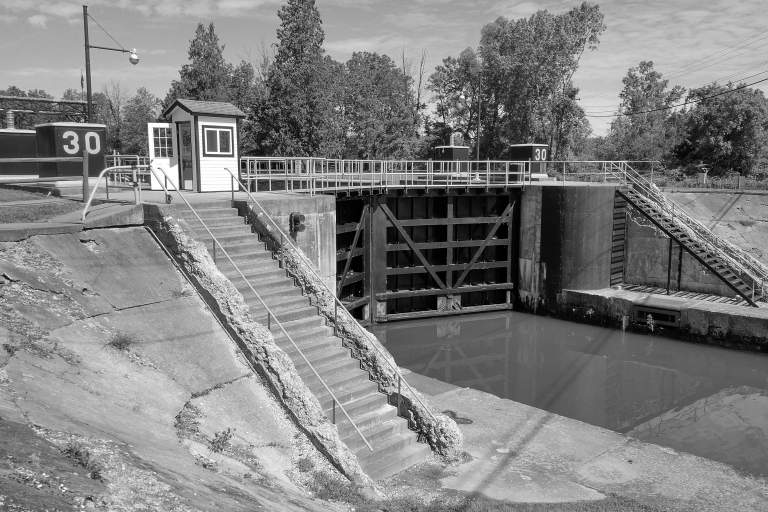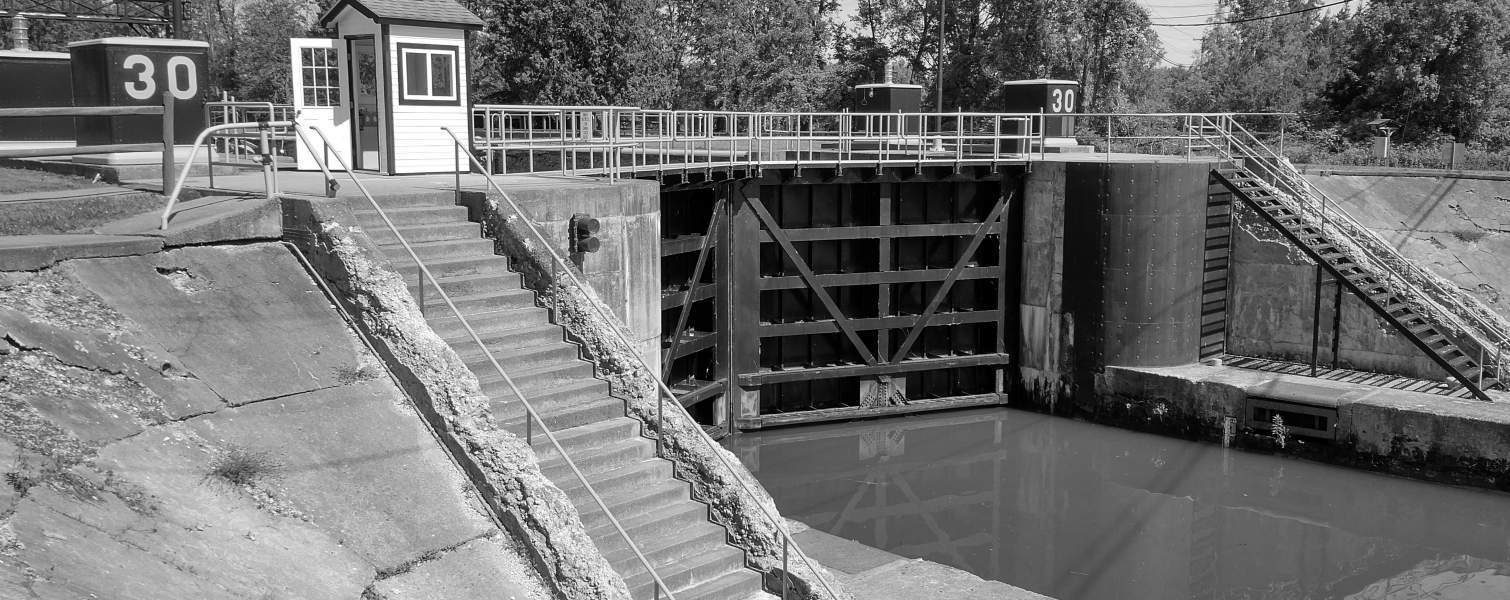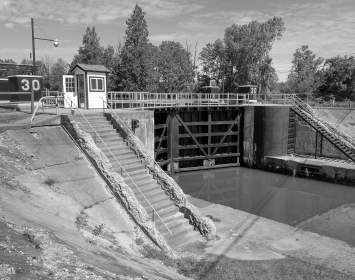History records that “Macedon Lock” was the site of an 1847 convention at which Gerrit Smith, Frederick Douglass, and others formed the Liberty League. The League was a more radical offshoot of the abolitionist Liberty Party. “Macedon Lock” is also the reputed birthplace of Hamilton Carhartt, founder of the workwear company that bears his name and continues in business today. Because of that, many Carhartt retail stores have a standard historical page on their websites assuring readers that there was, indeed, such a community as Macedon Lock. (The history page on Carhartt’s corporate website now omits mention of the founder’s birthplace.) But Macedon Lock, as such, never existed.
There were—and are—the town of Macedon (founded in 1823) and the hamlet of Macedon (founded in 1856; unincorporated in 2017). Both are in Wayne County, are named for the birthplace of Alexander the Great, and center on the Erie Canal (now the New York State Barge Canal). Macedon was home to three locks as the Canal underwent various enlargements and reconstructions. At the time of the 1847 convention, Macedon was one of only a few canal towns that boasted two locks—more properly, a double-chamber lock (built 1842) able to handle simultaneous traffic in both directions. That structure, comprising the former Locks 60 and 71, now lies abandoned; its ruins anchor a canal-themed town park. Nearby is the contemporary Lock 30 of the Barge Canal (built about 1914). It ensures that the canal legacy remains a living thing in Macedon.
The Town of Macedon was acquired from the State of Massachusetts in 1788 as part of the Phelps and Gorham Purchase. The first European settlers arrived in 1789. With the construction of the Erie Canal (1817–1825) the area became a magnet for development. The Town of Macedon was formed in 1823 from the former western half of the Town of Palmyra. The Village of Macedon was one of many port communities that sprang up after the Canal opened in 1825.
Despite its modest size, the Liberty League convention was significant enough that in subsequent years abolitionists used “Macedon Lock” as a shorthand name for the event in their writings and correspondence. The usage was picked up by historians of the abolition movement, creating a unique challenge for history enthusiasts who go in search of a town, village, or hamlet by that name. Although there is no Macedon Lock, Macedon exists and has been home to various canal locks since 1825.


